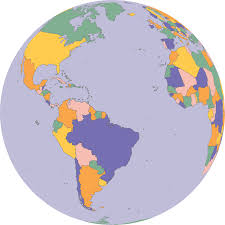The Particularity and Universality of Ethno-Christocracy

21 April 2025
By Dr Adi Schlebusch
All the ends of the earth shall remember and turn to the Lord, and all the families of the nations shall worship before you. For kingship belongs to the Lord, and he rules over the nations.
- Psalm 22:27-28
Christ rules all nations. As a political theory, Ethno-Christocracy accounts for the reality of a divinely ordained framework for Christ's governance, harmonizing his universal lordship with the particular callings of every distinct people (Acts 17:26-27, Matthew 28:19-20). This model reflects the biblical truth that God has wills and often providentially assigns distinct homelands to the different ethnic groups, each uniquely tasked with glorifying Him through their unique cultural and national expressions. Civil authority must everywhere submit to Christ’s kingship, ensuring governance aligns with Scripture’s moral and spiritual order for all nations. Yet it is vital to simultaneously honor God’s design, allowing every people to flourish in accordance with their particular place and identity under Christ’s universal reign and his singular moral order.
In contrast to globalist ideologies that seek to erase cultural distinctives on the one hand, and oppose the monopoly of Christian truth on the other, Ethno-Christocracy offers a covenantal vision for societal renewal that is both universally applicable and at the same particular to each distinct people. It rejects globalism’s homogenizing tendencies, which undermine the biblical mandate to steward one’s heritage, while at the same time avoiding a kind of cultural relativism which would reduce all of humanity to a plurality without any fundamental unity rooted in the imago dei.
Ethno-Christocracy is ultimately about fidelity to God’s will, order, and design, where ethnic groups from every race exercise self-determination in accordance with Biblical law, thereby fostering not only justice and piety, but also cultivating natural affections. Natural affections are, for example, reflected in the heroes we honor and teach our children about. Moses the Black, the famous fourth-century desert farther from Ethiopia, for example, is celebrated for his asceticism and martyrdom, and serves as an ideal role model for Black Christians in particular.
Furthermore, because sovereign rule is Christ's alone, and not rooted in human reason or imaginations, Ethno-Christocracy also avoids what Guillaume Groen van Prinsterer describes as "the absolutism that logically flows from the theory of natural law."1 Because Christ alone rules all nations, Ethno-Christocracy ensures that every people’s laws and institutions reflect His eternal standards as revealed in his perfect Law, albeit tailored to their unique vocations when it comes to practical application. As such this political theory affirms that in the new Christendom ethnic identities ought not to be erased but cherished and preserved as expressions of God’s diverse creation, with each people and their government embracing their own distinct identity, heritage, and national future, all while serving the Church universal. In the final chapter of the Vindiciae Contra Tyrannos (1579), for example, it is asserted that Christian authorities have a duty to assist believers from other nations, especially where they suffer for their faith, since the Church is one body and everyone's well-being affects each other. Here too the unity and multiplicity of the body of Christ are emphasized by the acknowledgment that different peoples normally live in different republics or under different authorities, yet that every Christian national authority still bears some responsibility toward believers from other nations. Vindiciae thereby highlights how it is beneficial for all nations when a particular nation repents and institutes a Christian government.
All tribes and nations of all races ought to be discipled to cultivate their distinct traditions, languages, genetic strengths, and national histories under Christ’s kingship, thereby maintaining societies that are culturally rich and spiritually grounded.
Far from isolating nations or limiting itself to one race, Ethno-Christocracy enables all peoples—every race and ethnicity—to fulfill their God-ordained purposes in mutual respect, bound by the Gospel’s truth. Highlighting the covenantal identity and function of each people group in the universal kingdom under Christ's rule, serves as a bulwark against both globalism and deconfessionalization, which strip peoples of their heritage on the one hand and their faith on the other. By embracing Ethno-Christocracy, Christian nations all over the world can reclaim their calling to build societies that honor Christ as King, ensuring their laws, cultures, traditions, and aspirations are sanctified by the truths of God’s Word. Christ rules all nations, uniting them in His universal kingdom not by homogenizing them, but by means of a model of ethnic complementarianism which cherishes and celebrates the particular glories of each distinct nation.
1. Groen van Prinsterer, G. 1861. Ter nagedachgtenis van Stahl. Muller: Amsterdam, p. 51.